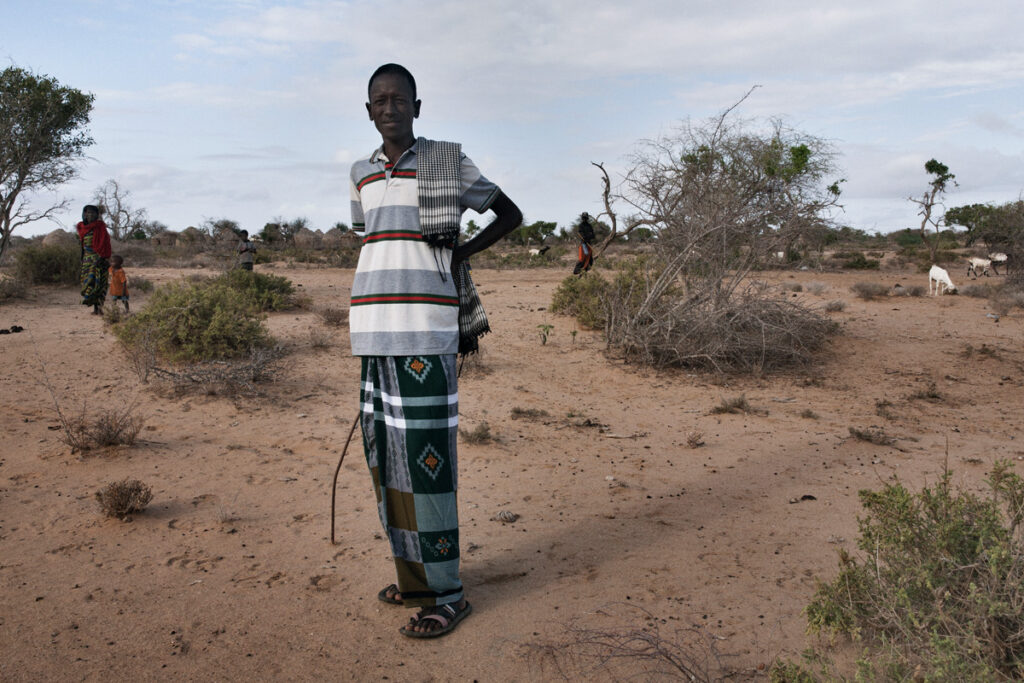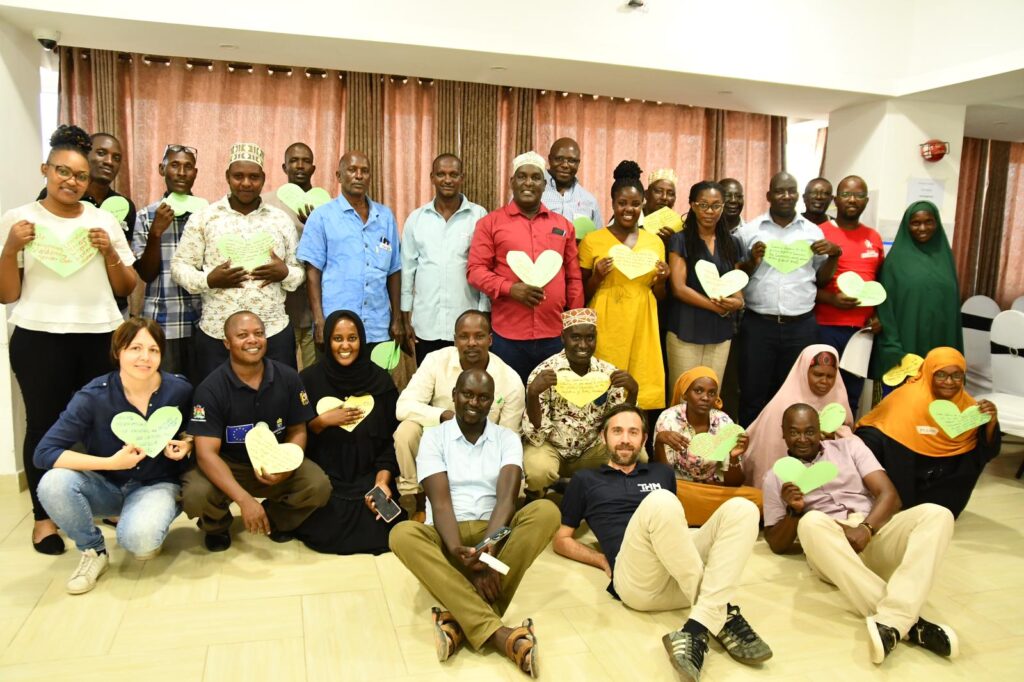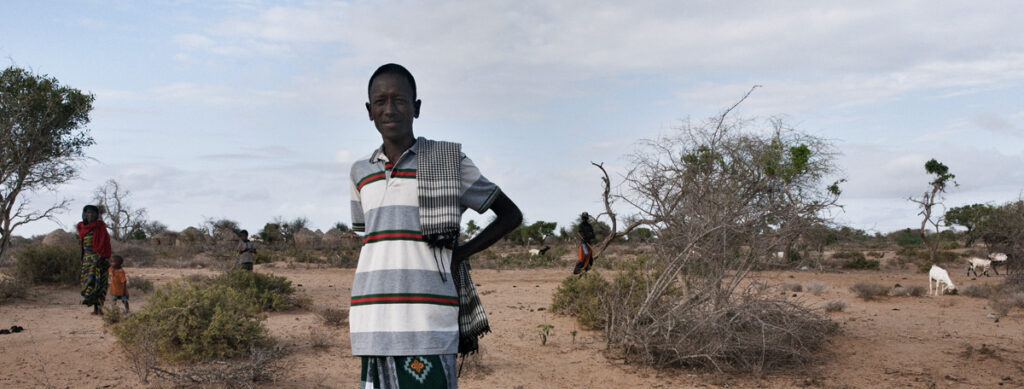Is the Index Based Livestock Insurance product sustainable as an emergency drought relief response?
/
BIMA (Improving Livestock Insurance Trigger Mechanisms and Gender-Responsive Products for Drought-Affected (agro-)Pastoralists) is a research project that aims to improve the capacity of (agro-)pastoral communities in Kenya to cope with climate shocks through a more effective and gender-responsive insurance package including livestock insurance.
BIMA is part of the Climate Adaptation and Resilience (CLARE) initiative a partnership between IDRC and FCDO to enable socially inclusive and sustainable action to build resilience to climate change and natural hazards for people across the Global South by supporting research to enable social inclusive and sustainable action to build resilience to climate change and natural hazards across Africa and Asia-Pacific.
The project is undertaken in the Tana River County by a consortium comprising CISP (International Committee for the Development of Peoples), the UON (University of Nairobi), TRIM (Translate Into Meaning) and CCGD (Collaborative Centre for Gender and Development).
Pastoral communities in Arid and Semi-Arid Lands (ASAL) are vulnerable and exposed to the adverse effects extreme climate-related events pose: acute food insecurity, malnutrition, competing for limited resources such as water and pasture, higher levels of poverty and ultimately loss of livestock. However, having access to Index-Based Livestock Insurance (IBLI), a sustainable alternative to costly emergency drought relief response, can provide asset protection and security planning by enabling the purchase of fodder and water to prevent drought-induced livestock death.

The Index Based Livestock Insurance product (IBLI) has had gaps in the sensitivity of the existing trigger index to accurately reflect the actual forage quality distribution and water availability leading to it’s low uptake by pastoralists in Tana River County.
CISP (the lead coordinator), University of Nairobi (the highest-ranked Kenyan public university with a track record of research in resilience building in ASAL counties of Kenya), TRIM (the expert in weather-localised data collection, climate analysis and disaster risk reduction) and CCGD (leading the the gender equality and inclusion component of the research) organized a participatory stakeholders workshop in Hola, Tana River on 22nd February, 2024 to provide a platform to synergize the goals and purpose of BIMA project with complementary national and regional ventures.
This workshop aimed to interrogate and validate the accuracy of the existing livestock insurance products and highlight associated opportunities, present a gender-sensitive satisfaction assessment on the IBLI product for Tana River County and opportunities therein for policy interventions necessary to stimulate the uptake of gender-responsive insurance products.

It attracted representatives from the insurance companies, key government representatives including Department of Livestock, National Drought Management Authority and Kenya Meteorological Department, researchers and Index Based Livestock Insurance (IBLI) experts, community representatives, including past policyholders.
Professor Nicholas Oguge, the Principal investigator BIMA project, started off the workshop by getting a general overview of what the participants understood IBLI to be and how it works.
“IBLI uses satellite images to assess the pasture and browse conditions over rainy to dry seasons to determine the level of pasture deterioration overtime so as to compensate livestock keepers.”
Guyo Kabere, from Delta Dairy in Chifiri.
During the workshop, participants highlighted the challenges they faced with the current livestock insurance scheme. One of the main challenges being the presence of the green thorny shrub known as Mathenge or Prosopis Juliflora, that has spread aggressively taking over vast lands affecting the compensation and payouts that depend on the VCI (Vegetation Condition Index) captured via satellite. “It’s dependant on satellite imagery, which is not always correct, so the information is inaccurate to determine the compensation/payouts” said Idris Guyo – Chief,Bangale.
In one of the forums, Kennedy Okeyo, the Director, NDMA added that Mathenge also affects palatable pasture, that has a direct effect on the body condition of livestock which in turn affect their consumption, production and livestock prices.
There was also a gender sensitive satisfaction assessment on the current IBLI led by Maureen Akoth, a research officer from CCGD. Women from the community appreciated and acknowledged that there is a gender bias when it comes to payouts and compensation especially to women. They are not recognized as property or livestock owners, yet many of them look after the livestock.

“Gender inequality is not only cultural, but also religious within Tana River County which is predominantly Muslim.”
Mariam Bassa – IBLI beneficiary
Overall, there was consensus on the value that livestock insurance provides, including peace of mind, keeping livestock alive in seasons of financial strain and reduces risk and loss of livelihoods. Mohammed Bakari, the Assistant Chief and community observer in Pumwani said, “IBLI is useful in the sense that it forms one of the main drought response which is to offer households security and resilience in the event of drought.”
“IBLI is very useful because it protects livelihood aspects of the pastoral community thereby contributing to the development of the country.”
Amina Abarea, a livestock farmer in Wayu, Tana River County
This workshop proved essential to formulate the IBLI needs and expectations of the target communities, and gave insight on appraising complementary parameters to enhance timely trigger for IBLI payouts.
Follow our social media pages for updates
Categories
Countries
CLARE Pillars
CLARE Themes
CLARE Topics


